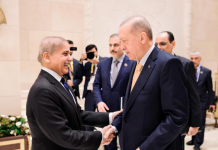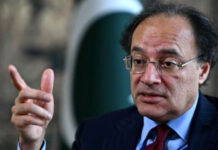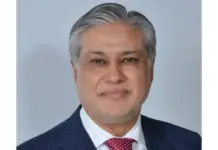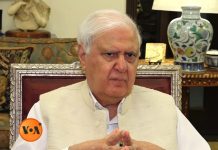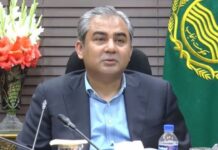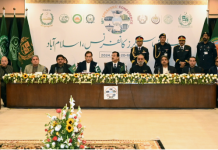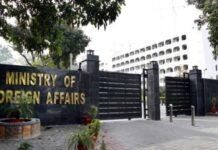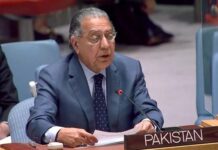KARACHI: Sindh Chief Minister Murad Ali Shah, who also holds the finance portfolio, unveiled the provincial budget for fiscal 2017-18 with an outlay of Rs1.04 trillion in the Sindh Assembly on Monday.
In his budget speech, Murad Ali Shah stated that the budget for the financial year 2017-18 reflects a 19.3 per cent increase over the 2016-17 budget. The budget deficit is expected at more than Rs14 billion for the upcoming fiscal year, he said. Total revenue is expected to see a 20.4 percent increase at 1.028.8 trillion from previous fiscal year.
Amount allocated for the province under the Annual Development Plan is Rs 244 billion, out of which Rs151.83 billion has been allocated for 2,158 ongoing schemes. The chief minister said that 816 new schemes are being introduced in the province, for which Rs92.163bn have been allocated.
The government has proposed a property tax for 120-yards houses and an entertainment tax on cinemas. An amount of Rs 92 billion has been earmarked for security-related costs. The provincial budgetary estimates for non-development expenses are expected to be Rs 665 billion, while the overall development budget will be around Rs 346 billion.
The Sindh government has also proposed a 10 percent increase in the salaries and pension of government employees, besides announcing creation of over 46,000 new jobs. This is expected to include 14,000 vacancies to regularise the services of lady health workers and 10,000 new jobs in the police force and Rs 20 billion has been allocated in the budget for the new posts.
As per its provincial share under the National Finance Commission Award, the government is likely to be allocated Rs 627 billion from the federal government, whereas it is likely to collect Rs 200 billion under provincial taxes.
A sum of over Rs 42 billion, collected with foreign assistance, will be reserved for ongoing development projects of the province. In the upcoming financial year, the Sindh government is to spend an amount of around Rs 320 million on projects to be developed in the province with the centre’s assistance.
According to Sindh chief minister, education will get the largest chunk of the budget in the upcoming fiscal year than ever before. Murad Ali also said the government would not be introducing any new tax for the fiscal year. The government of Sindh allocated Rs 202 billion for education in its budget, up 24 percent from Rs163 bn for the ongoing year.
He said that the government had approved Rs five billion grant for universities and other educational institutions. Rs eight billion from the education budget will go to the Sindh Education Foundation, while a ‘reward system’, which will grant Rs 100,000 to every student who achieves A-1 grade in Intermediate and matriculation exams, shall also be introduced.
According to Murad, Rs 100.32 billion has been allocated for health in Sindh for fiscal 2017-18. The amount represents an increase of 26 percent over the current year’s allocation of Rs79.88bn. The Sindh Immunisation Support Program, which “will revolutionise the vaccination and inoculation process making our future generations healthier,” has been allocated Rs 8.09 billion, according to the budget speech made by the Sindh CM.
Development expenditure for fiscal 2017-18 has been set at Rs 274billion. He stated that the share of road infrastructure in the Annual Development Programme will be increased from Rs 15.54 billion to Rs 25.77 billion for 2017-18. A further 5bn has been allocated for the repair of roads, he said.
Among major developmental projects, Karachi-Thatta Dual Carriageway is to be completed by the end of this calendar year at the cost of Rs 8.85 billion, he said. Murad also stated that Rs 5.5 billion have been allocated for solid waste management while Rs 71 billion will go to local councils.
The provincial government has also allocated Rs 6.4 billion to the Greater Karachi Water Supply Project (K-IV) in addition to the allocation made by the federal government. A further Rs 1.5 billion will go to the Greater Karachi Sewage Treatment Project, commonly known as the S-III project.
In his speech, the chief minister also noted that the Karachi Circular Railway, costing $2.4 billion, has been included in the China-Pakistan Economic Corridor and that the Sindh government was “thankful to the Federal government for extending its support for construction of Green Line BRTS”.
During his speech, Murad lamented that although the federal government was the biggest contributor to Sindh’s finances, contributing 75pc of its total resources, the Sindh government has received less than the stipulated amount each year, resulting in a persistent shortfall.
He further stated that the government’s failure to grant the 9th NFC award was a proof of “the inefficiencies plaguing the system at such a high level”.



